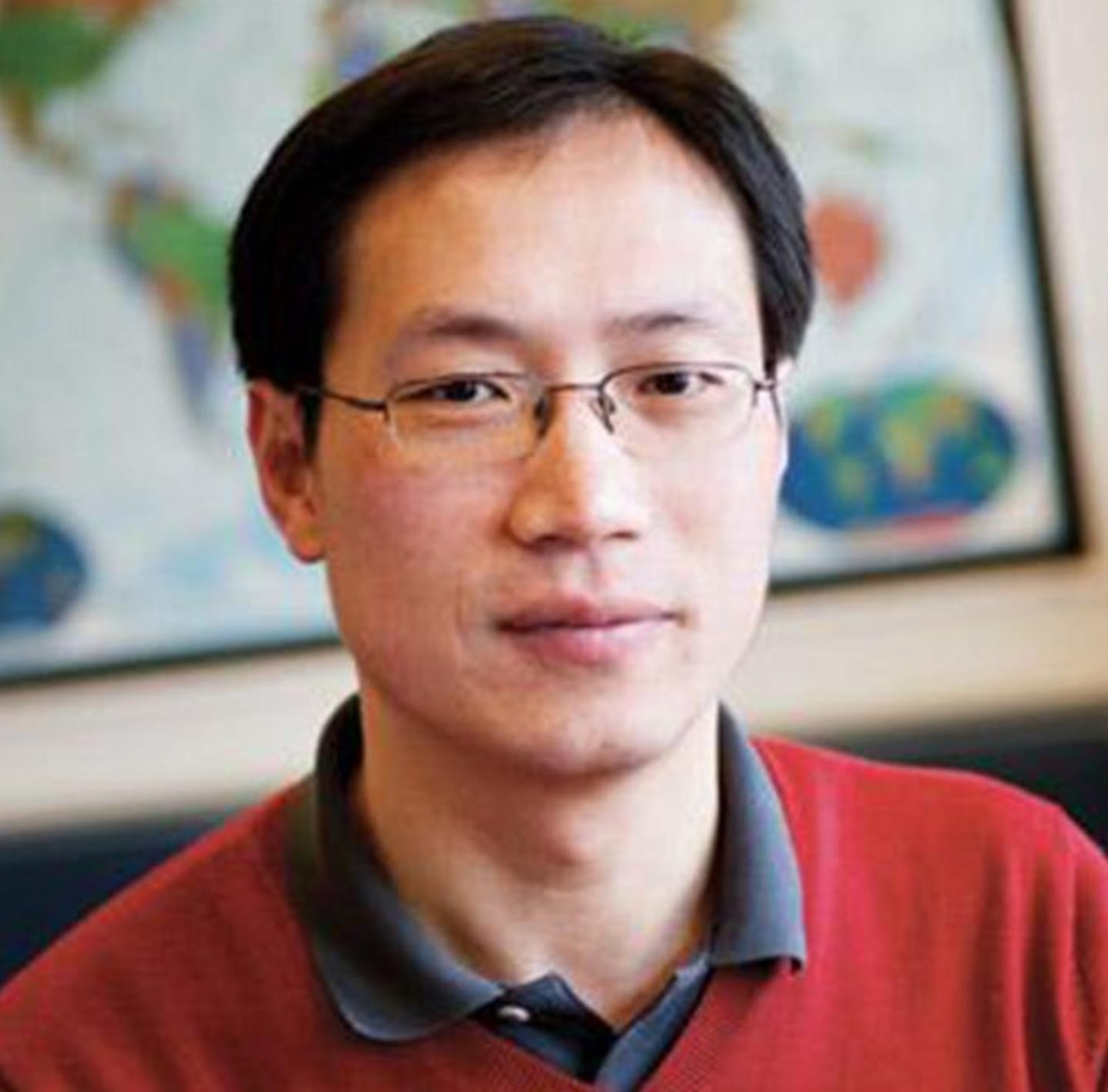
The US Public Deserves to Know
- FBI raided two homes of renowned cryptographer Xiaofeng Wang and wife Nianli Ma on March 28, 2025; both vanished from public view.
- Indiana University fired them the same day without due process and scrubbed their profiles, sparking outrage among faculty.
- No official reason was given; speculation centers on an undeclared Chinese research grant from 2017–2018.
- Legal status: they’re “safe,” not in custody or charged—but no one knows where they are.
- IU’s rapid purge without evidence or hearing has alarmed academia, raising concerns of racial profiling and authoritarian overreach.
Two homes in Carmel and Bloomington Indiana were raided by the FBI on March 28th, 2025. Both of them belonged to Xiaofeng Wang and his wife, Nianli Ma. Neighbors watched with confusion as federal agents yelled, “FBI, open up!” They spent the day emptying boxes of confiscated materials from the homes with a search warrant. The same day Indiana University terminated both employees prestigiously regarded in their computer science fields. Their profiles and contact information were quietly purged from the university’s website.
The part that has faculty, staff, and students concerned? Nobody knows why any of this happening. Does it have anything to do with a Chinese grant Wang participated in 8 years ago? We’ll discuss that more later. This article will cover the official story and speculations on what could be causing this investigation. And the question remains: where is Xiaofeng Wang?

I. Who is Xiaofeng Wang?
Wang is a renowned computer scientist possessing the highest accolades his field has to offer in cryptography and cybersecurity.
His litany of prestigious titles include being celebrated as the associate dean for research at Indiana University’s Lundy School of Informatics, Computing and Engineering where he became co-director of the Security and Privacy in Informatics, Computing, and Engineering (SPICE), a fellow at the Institute of Electrical and Electronics Engineers (IEEE) and the American Association of the Advancement of Science (AAAS).
Over his 21 years in the field Wang attracted over $23 million in research grants during his stint as principal investigator.
Academia welcomed him as a polymath across cryptography, cybersecurity, and data privacy. Wang’s leading expertise allowed him to co-author peer-reviewed work in cryptographic protocols, system security, and protecting sensitive data (even pioneering methods to safeguard genomic information).
 Derek GuzmanDerek Guzman
Derek GuzmanDerek Guzman
Wang’s comprehensive leading expertise made him an asset as both director and lead investigator at the Center for Distributed Confidential Computing. A multi-institution effort between combing faculty of IU, CMU, Duke, OSU, Penn State, Purdue, Spelman and Yale. The center was established with a $3 million grant from the National Science Foundation.
Much of Wang’s funding came from government agencies with cybersecurity priorities. For example, he was co-PI on the Intelligence Advanced Research Projects Activity (IARPA) researching statistical methods for back door detection in deep neural networks. That project alone brought in $1,748,209.
The cryptographer’s research was public service. One that’s put years of progress on national cybersecurity. US intelligence agencies have directly benefited from his work. There’s no history of disciplinary issues or controversies prior to his disappearance that raises eyebrows. He was a model academic, and rockstar in his field.

II. The Circumstances of His Disappearance
Indiana neighbors watched federal agents with search warrants raid both homes belonging to Wang and Ma, and pour out of those properties with large boxes. Wang and Ma hadn’t appeared publicly in the days following the raid raising alarm among students and staff leading to rumors that the couple had been taken into custody in secret. Both colleagues and reporters were unable to make contact.
The nature of the investigation remains unclear. In large part, because the search warrants are sealed by the court. Their lawyers didn’t know where they were, or what the affidavit was calling probable cause.
"None of this is in any way normal," Matthew Green, a professor specializing in cryptography at Johns Hopkins University, wrote on Mastodon. He continued: "Has anyone been in contact? I hear he’s been missing for two weeks and his students can’t reach him. How does this not get noticed for two weeks???"
Indiana University (IU) had quietly scrubbed Ma and Wang’s legacy from the company’s website the same day the FBI raided their homes, and terminated both of them. Staff recognized the couple were being terminated without due process, and were concerned any of them could be next. The American Association of University Professors (AAUP) accused IU of terminating the professors without due process including advanced noticed and a hearing before the Faculty Board of Review.
 Derek GuzmanDerek Guzman
Derek GuzmanDerek Guzman
Matt Blaze, a McDevitt professor of computer science and law at Georgetown University, commented under Green’s Mastodon thread: "It's hard to imagine what reason there could be for the university to scrub its website as if he never worked there. And while there's a process for removing tenured faculty, it takes more than an afternoon to do it."
“They're not talking,” Alex Tanford, professor emeritus and IUB’s AAUP chapter president, told the Indiana Daily Student (IDS). “And everybody, guilty or innocent, is entitled to a fair due process procedure for determining their responsibility. He was a tenured professor, and it's frightening to all of us.”
However on April 2nd Wang and Ma’s attorneys announced that the couple was “safe,” and not held in custody, or facing any charges.

III. Speculations Around the FBI Raid
IU and the FBI have yet to comment on the ongoing investigation. But we don’t have to limit ourselves to pure imagination. Multiple well-informed sources have reported Wang was under investigation by IU since last December over a Chinese research grant Wang participated in between 2017 and 2018.
If that’s true then Xiaofeng Wang could represent a national security risk that justifies the FBI’s actions. Even a suspicion of US research benefitting its adversaries could be cause for alarm among intelligence agencies. Grant money from China would’ve had to have been reported on applications for US grants, which Wang did not disclose. Potentially because it never happened. Innocent until proven guilty by a fair trial.
 Derek GuzmanDerek Guzman
Derek GuzmanDerek Guzman
But even if Wang engaged in unethical Grant grabs, does that justify IU’s actions? Professors say it doesn’t. Professor Matthew Green expressed concern that the university’s unprofessional behavior could act as a deterrent for young Chinese professionals from studying in US universities. Potentially even motivating US talent to emigrate to other countries and continue their studies.
“We may lose a huge amount of expertise.” – Professor Matthew Green
There’s a process for terminating a professor in the US including advanced notice and the right to a hearing. None of which was extended to Wang who was suddenly terminated the day of the FBI raid.
The results of the FBI investigation may prove that their suspicions were right or wrong. However IU is damaging the representation of the US universities by assuming Wang is guilty before that’s proven in court. By bypassing standard protocol with an unethical termination they’ve scared their own professors and signaled racist assumptions across academia in the country. Because regardless of the circumstances it’s clear IU is disregarding professional decorum.

